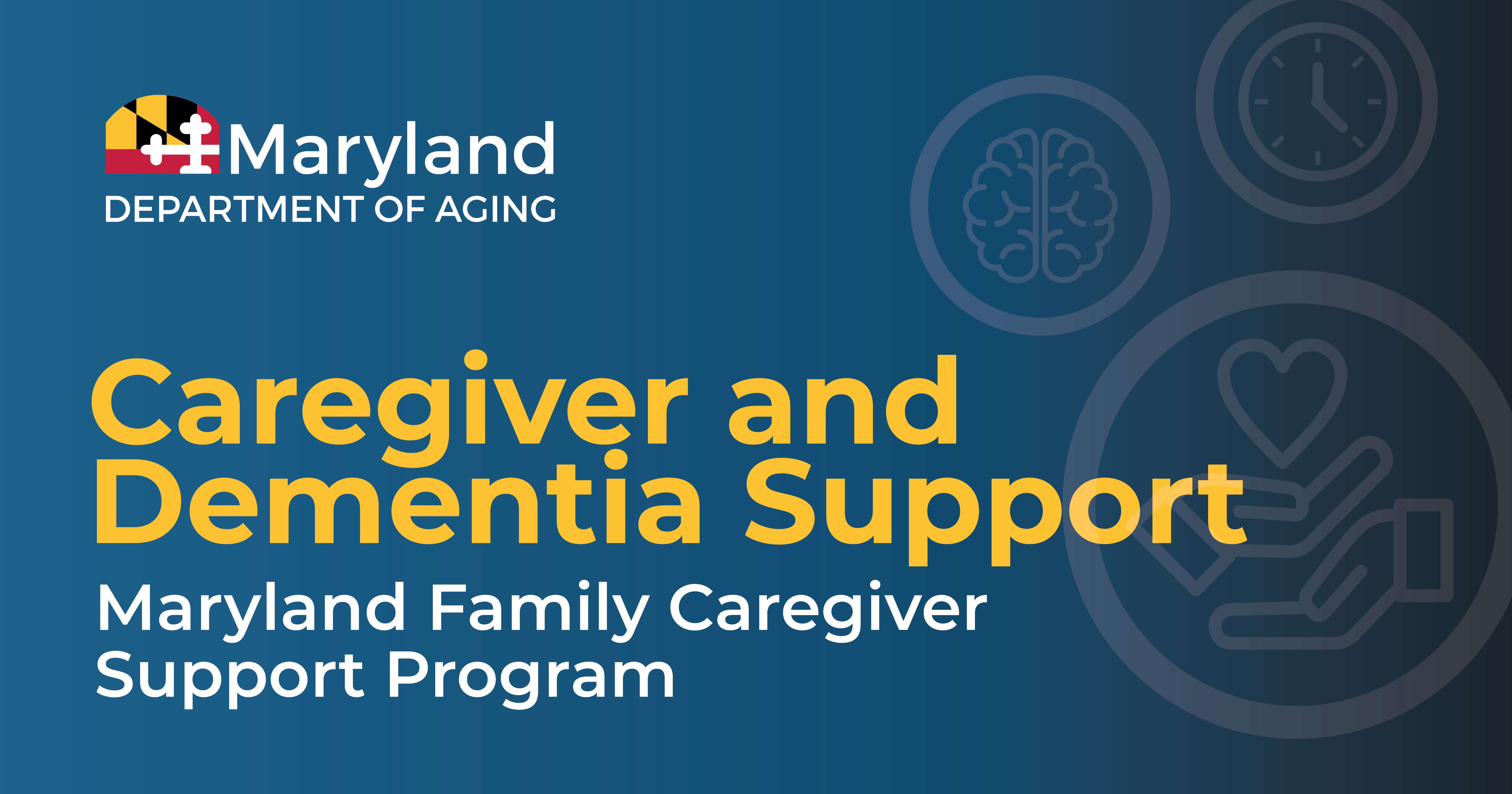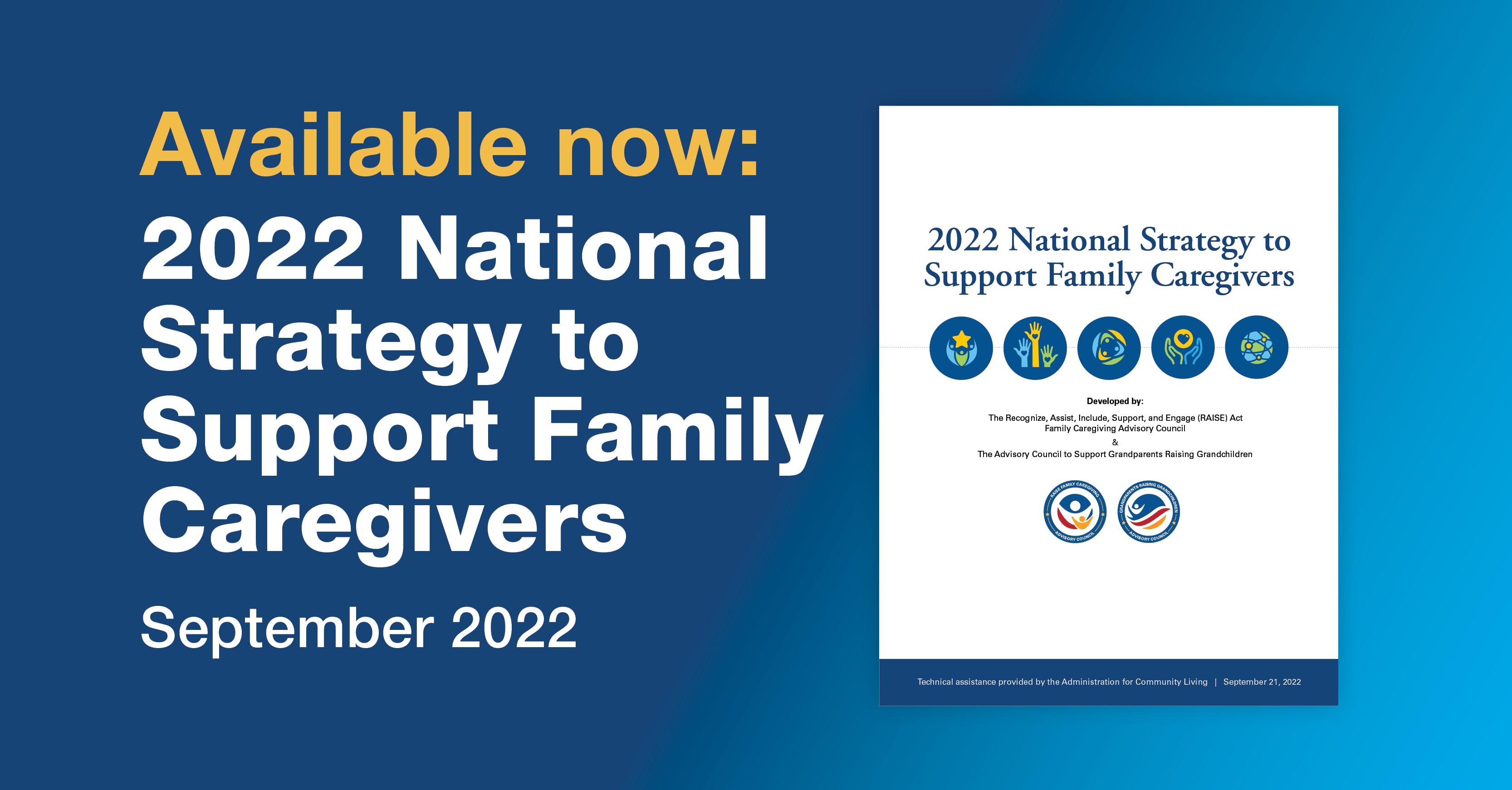Caregiver and Dementia Support
Main_Content

Family Caregiver Support Program
The Maryland Family Caregiver Support Program is administered by the local network of
Area Agencies on Aging with funding from the federal Administration for Community Living. The program helps family and informal caregivers care for their loved ones at home for as long as possible. Family caregivers are the major source of unpaid help for older and disabled adults living in communities across the state. These caregivers typically include spouses, adult children, relatives, and friends.
Maryland's Family Caregiver Support Program works in conjunction with a host of State and community-based services to create a coordinated array of supports for individuals who need them. Studies show that these services can reduce caregiver depression, anxiety, and stress and enable them to provide care longer, thereby avoiding or delaying the need for costly institutional care. The program
offers five types of Caregiver Services:
A service that provides the individuals with current information on opportunities and services available to the individuals within their communities.
Information
- A public and media activity that conveys information to caregivers about available services, including in-person interactive presentations, booth/exhibits, or radio, TV, or Web site events.
- This service is not tailored to the needs of the individual.
Counseling
- A service designed to support caregivers and assist them in decision- making and problem solving.
- Provided by a qualified counselor
- Includes counseling to individuals or group sessions
Case Management
- A service provided to a caregiver, at the direction of the caregiver by an individual who is trained or experienced in the case management skills that are required to deliver services and coordination.
Training
- A service that provides caregivers with instruction to improve knowledge and performance of specific skills relating to caregiving.
- Skills may include activities related to health, nutrition, and financial management; providing personal care; and communicating with health care providers and other family members.
Support Groups
- A service led by an individual who meets state/territory policy requirements to facilitate caregiver discussion of their experiences and concerns and develop a mutual support system.
- For the purposes of Title III-E funding, caregiver support groups would not include “caregiver education groups," “peer-to-peer support groups," or other groups primarily which teach skills or meet without a qualified facilitator.
A service which offers temporary, substitute supports or living arrangements for care recipients. It provides a brief period of relief or rest for caregivers.
Supplemental services on a limited basis
- Goods and services provided on a limited basis to complement the care provided by caregivers.
- A category of service that describes the state-defined service, which does not fall into the previously defined service categories.
- Assistive Technology/Durable Equipment/Emergency Response
- Consumable Supplies
- Home Modifications/Repairs
- Legal and/or Financial Consultation
- Homemaker/Chore/Personal Care
- Transportation
- Nutrition Services
- Other
Eligible Caregivers
- Adult family members or other informal caregivers age 18 and older providing care to individuals 60 years of age and older;
- Adult family members or other informal caregivers age 18 and older providing care to individuals of any age with Alzheimer's disease and related disorders;
- Grandparents and other relatives (not parents) 55 years of age and older providing care to children under the age of 18; and
- Grandparents and other relatives (not parents) 55 years of age and older providing care to adults age 18-59 with disabilities.
- An adult family member, or another individual
- Informal
provider of in-home and community care
- Older
individual
- Individual
with Alzheimer’s disease or a related disorder
- Caregiver who is age 55 or older
- Provides
support to a child under 18 and is not a parent
- Provides
support to an adult ages 18-59 with disability (may be a parent)
ACL Resources

ACL's 2024 Progress Report on the Federal Implementation of the 2022 National Strategy to Support Family Caregivers is available. You can download it here.
November is National Family Caregivers Month
National Family Caregivers Month – celebrated each November — is a time to recognize and honor family caregivers across the country. Celebrating Family Caregivers during National Family Caregivers Month enables all of us to:
-
Raise awareness of family caregiver issues
- Celebrate the efforts of family caregivers
- Educate family caregivers about self-identification
- Increase support for family caregivers
- Reduce feelings of isolation
